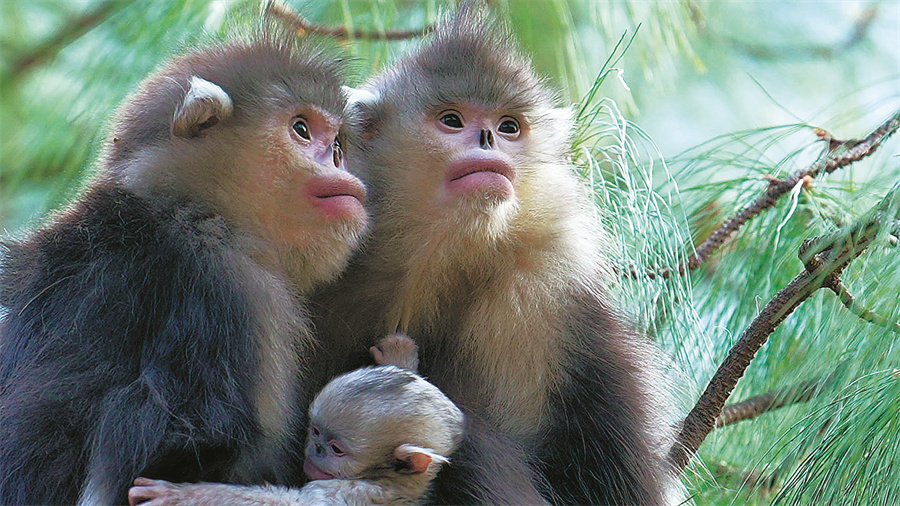Reserve ensures survival of rare monkeys


Comparing the maps of habitats of humans and other primates in China, Long noticed an overlap between many of the regions favored by primates and by humans.
"The monkeys share many similarities with us humans. To protect them is to protect ourselves. A lot of questions remain about them and their interaction with nature. We should make more efforts to save biodiversity before it's too late," Long said.
According to Lai Jiandong, from the wildlife protection station at the Baima reserve, five nature reserves, including Baima, have been set up over recent decades, providing more effective protection of the Yunnan snub-nosed monkey.
In 2019, a protection network consisting of the local government and NGOs was established, and the number of member organizations has risen from 13 to 28. Over the past three years, ecological corridors totaling more than 400 hectares have been built or restored, with 630,000 trees planted, which has facilitated gene exchanges among different groups of monkeys.
"The conservation of the Yunnan snub-nosed monkey is on the right track and my dream of saving the species has been realized. Now, as a retiree, I just hope that one day this black-and-white monkey will be as popular as the black-and-white giant panda," Long said.

























